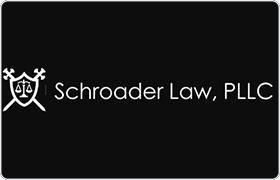Vaughn Criminal Lawyer, Washington, page 2
Sponsored Law Firm
-
 x
x

Click For More Info:
-
Schroader Law, PLLC
1105 Tacoma Ave S Tacoma, WA 98402» view mapCriminal Defense Exceptional Legal Service
Schroader Law, PLLC offers superior service from start to finish. Attorney Schroader is a knowledgeable lawyer offering comprehensive legal advice with realistic expectations.
800-916-9671
John Patrick O'Melveny
Guardianships & Conservatorships, Criminal, Personal Injury, Federal
Status: In Good Standing Licensed: 45 Years
Kathryn R Portteus
Juvenile Law, Wills, Estate Planning, Estate
Status: In Good Standing Licensed: 27 Years
Kathryn Kaminoff Weymiller
Juvenile Law, Other, State Government, Government
Status: In Good Standing Licensed: 31 Years
Mark D Nelson
Personal Injury, Employment Discrimination, Family Law, Criminal
Status: In Good Standing
Nathaniel Ryan Schlicher
Criminal, Civil Rights, Insurance, Malpractice
Status: In Good Standing Licensed: 22 Years
Phillip Alexander Johnston
Military, Other, Criminal, Legal Malpractice
Status: In Good Standing Licensed: 17 Years
Robert William Hood
State Government, Government, Criminal
Status: In Good Standing Licensed: 28 Years
 Dennis Schroader Tacoma, WA
Dennis Schroader Tacoma, WA Practice AreasExpertise
Practice AreasExpertise
